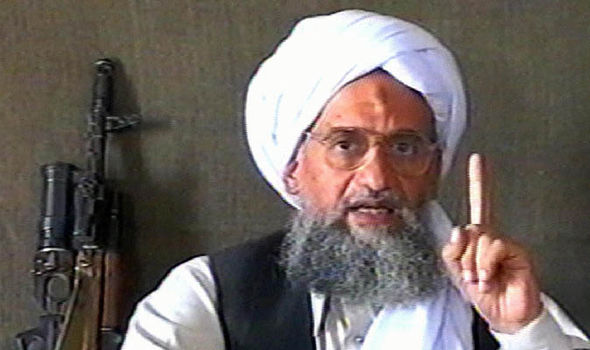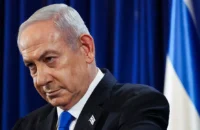Tufail Ahmad
On 22 September, just four days after the Uri attack, Al-Qaeda in the Indian Subcontinent (AQIS) released a statement accusing Pakistan and its military and spy agencies of betraying Kashmiris. Issued by AQIS spokesman Ustad Usama Mahmood, the statement says: “History testifies to the fact that fighting under the supervision and with the cooperation of Pakistani agencies is tantamount to wasting the fruitage of jihad and getting injustice on oppressed Kashmiris to increase.”
Earlier in mid-July, an AQIS statement had urged Kashmiris to follow in the footsteps of Burhan Wani, the Hizbul Mujahideen commander killed by the security forces.
With regard to statements from within Pakistan attributed to jihadi groups, we know the following: one, the Pakistan military’s Inter-Services Intelligence (ISI) continued to release statements in the name of Afghan Taliban chief Mullah Muhammad Omar for several years after his death in 2013, which was ultimately revealed by the Afghan government on 29 July last year. Two, a 32-page Urdu document attributed to the Islamic State was handed from within Pakistan to a US journalist last year in which the Islamic State warned India of an Armageddon-like terror attack. But, there is credible reason that the document was authored by ISI. It was definitely not issued by the Islamic State.
Not many analysts grasp that Al-Qaeda, though led by Arab terrorists, is fundamentally a Pakistani organisation, a branch of ISI. It was established in Peshawar in 1988. This is a critical year when the Soviet troops stood defeated in Afghanistan. And the ISI – which had commanded the jihadi groups during Afghan jihad with the aid of US arms and Saudi money – had emerged victorious. The ISI thought that it had defeated the Soviets, the mighty power of the time, and birthed a plan to achieve a similar feat in Kashmir. There is no way Al-Qaeda could have been established in Peshawar without the ISI’s knowledge and support.
It is from Pakistan that Al-Qaeda spread to the Middle East. It is in Pakistan that Al-Qaeda’s top leadership, Osama bin Laden to Ayman Al-Zawahiri, has been protected, like the ISI protected Mullah Omar and continues to protect current Afghan Taliban leader Haibatullah Akhunzadah, Jaish-e-Muhammad (JeM) chief Masood Azhar, Jamaatud Dawa chief Hafiz Muhammad Saeed and Syed Salahuddin, who calls himself supreme commander of Hizbul Mujahideen but behaves like a sheepish peon before Pakistani officials in Muzaffarabad. Also, both the ISI and Al-Qaeda share the jihadi ideology to establish an Islamic Caliphate, with the only difference being that the ISI longs for Pakistan to be the head of such an international caliphate.
Both the ISI and Al-Qaeda are known to function in close cooperation. So, in all probability the 22 September statement was issued by AQIS to draw attention to the current unrest in Kashmir. It urges the Muslims of Pakistan, India and Bangladesh to support the Kashmiris, and adds: “ending the oppressive pagan system in the Subcontinent is also an obligation on us.” Kashmir is an ideological war for both Al-Qaeda and the ISI. In recent years, Al-Qaeda underwent ideological turmoil and frustration in recruiting Muslims from India, but its message did reach some two-dozen Indian Muslims who joined it and some of them have now moved to Syria to be with the Islamic State.
Ever since 9/11, Pakistani military ruler General Pervez Musharraf adopted a policy of pleasing Americans by offering ‘sacrifices’ of jihadis – by killing them and by arresting and handing them over to the US. Each time General Musharrafwould land in Washington to meet with George Bush, some jihadi fighter would be arrested in staged operations and extradited to the US. Over the years, three types of disaffection emerged in Pakistan-based jihadi groups. First, Al-Qaeda began reviewing the Pakistani military’s relationship with Muslims sometime around 2010. This was the result of Arab fighters being killed in the border region in Pakistani army operations.
In its review of the Pakistani military’s relationship with Muslims, Al-Qaeda came out with a jihadi interpretation of South Asia’s history. Al-Qaeda statements and videos questioned the Pakistan army’s historical relationship with Muslims through past three centuries – back at least to the Battle of Plassey in 1757, or 190 years before Pakistan was created in 1947.
Al-Qaeda videos pointed out that the Pakistan army – i.e. including the Muslim soldiers of British Indian army – killed Muslims both before 1947 and after it. Al-Qaeda argued that Muslim/Pakistani soldiers were involved in killing Muslims in Plassey in 1757, in Delhi in 1857, during missions in Iraq and Palestine during the World War I and II, in Dhaka in 1971, in Jordan in Black September 1970 commanded by General Zia-ul-Haq, in the Federally Administered Tribal Areas during post-9/11 years, and so on.
Two, an ideologically committed core of Tehreek-e-Taliban Pakistan split from some of its leaders who played in the hands of the Pakistani intelligence agencies, notably Hafiz Gul Bahadur and Asmatullah Muawiya. Third, Jaish-e-Muhammad (JeM) and other arms of ISI underwent ideological turmoil, especially after Pakistan launched the 2007 military operation in Lal Masjid of Islamabad. JeM chief Maulana Masood Azhar, though worried, remained loyal to Pakistan. But his deputy Shamsh Kashmiri split from the organisation over this issue. The ideological split also occurred because the Taliban and Al-Qaeda fighters were tortured in Pakistani jails.
In this context, the ISI felt betrayed by the Pakistan army commanders and some of its soldiers went on to launch assassination attacks on General Musharraf. But the ISI remains part of the army, much as the jihadi groups continue to function as the long arm of the ISI. Admiral Mike Mullen, the chairman of the US Joint Chiefs of Staff, stated in a testimony before the US Congress in September 2011, that the Haqqani Network, the dominant unit of Afghan Taliban, was “a veritable arm of Pakistan’s Inter-Services Intelligence.” Also, the US military officials classified the ISI as a terrorist organisation. As per the WikiLeaks revelations in April 2011, the US designated the ISI as one of the 32 “militant forces or organisations” with which Al-Qaeda had “an established working, supportive, or beneficiary relationship for the achievement of common goals.”
Both the ISI and its jihadi organisations continue to work in tandem to advance Pakistan’s objectives. The ISI is very much a jihadi organisation with a global ideological outlook. While being part of the Pakistani military which guards Pakistan’s territorial border, the ISI has nursed an ideological commitment for the Islamic Ummah and it stands to guard the ideological border of Pakistan as Madina-e-Sani (the second Medina), the first one being the Islamic state established by Prophet Muhammad in the Saudi city.
The AQIS statement of September 22 observes: “The Kashmir dispute is not just a problem of the Muslims of Kashmir. It is problem of Pakistan and India’s Muslims, rather a problem of the entire Ummah’s 1.5 billion Muslims. The basis of this dispute is creed. Its basis is the very dispute between a Hindu and a Muslim.” This eternal Hindu-Muslim dispute, noted in this AQIS statement, is also the Two-Nation Theory that led to the creation of Pakistan and has been the bedrock of Pakistani thinking.
So, why is it that the AQIS statement of September 22 accuses the Pakistani intelligence agencies of betraying Kashmiris while simultaneously advancing the cause of the ISI in Kashmir – and at a time it is known that the entire Intifada in Kashmir is planned, funded and executed by the ISI? For now, it appears that the September 22 statement seeks to defend its parent organisation the ISI by giving it believable deniability of any role in Kashmir. While Al-Qaeda affiliates in the Middle East have adopted operational autonomy, Indian security analysts must not fall into the trap that the AQIS and the ISI are different organisations.
Former BBC journalist Tufail Ahmad is a contributing editor at Firstpost, and executive director of the Open Source Institute, New Delhi. He tweets @tufailelif



























